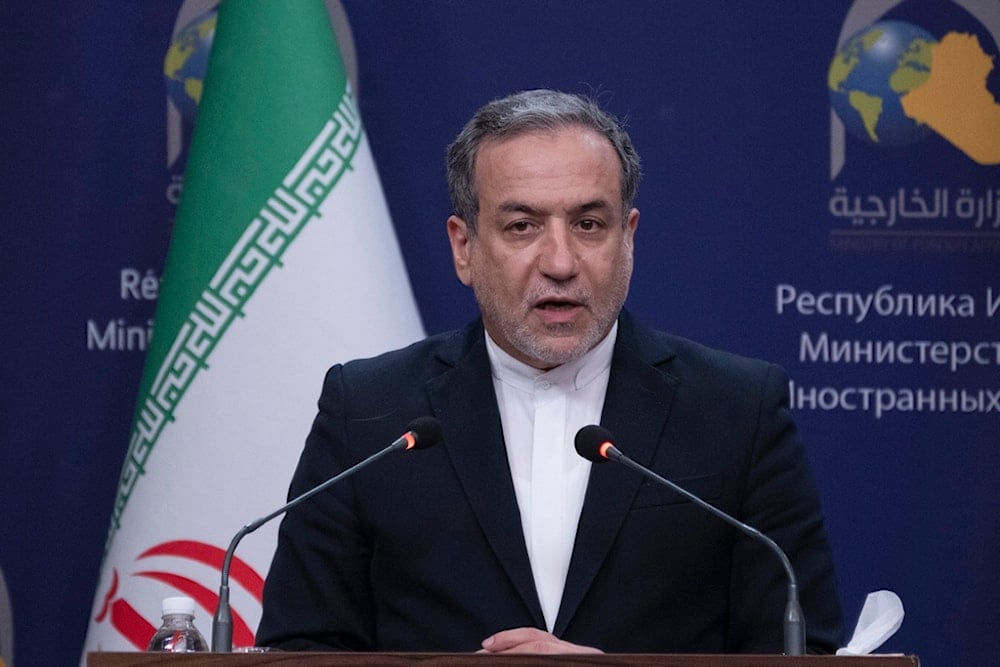Iran rejects forced talks, stresses nuclear program's peaceful nature
Abbas Araghchi reiterates Iran's peaceful nuclear program, asserting that the Islamic Republic will not be pressured into negotiations.
-

Iranian Foreign Minister Abbas Araghchi speaks during a news conference in Baghdad, Iraq, on Friday, December 6, 2024. (AP)
"Iran's nuclear energy program has always been—and will always remain—entirely peaceful," Iranian Foreign Minister Abbas Araghchi said in a post on X, dismissing concerns regarding its "militarization".
Araghchi dismissed the possibility of negotiations under external pressure, warning that Iran will not engage in talks under threats or intimidation, and asserting that negotiations must be distinct from coercion and ultimatums.
The senior diplomat highlighted ongoing consultations with the European signatories of the 2015 nuclear deal—known as the E3 (France, Germany, and the UK)—as well as separate discussions with Russia and China.
These engagements, he said, are taking place based on "equal footing and mutual respect" to increase transparency in Iran’s nuclear program in exchange for the removal of what Tehran says are unlawful Western sanctions.
Araghchi further underscored Iran’s stance on US policy, stating that Washington was treated with respect whenever it adopted a respectful approach but faced resistance whenever it resorted to threats. “Every action compels a reaction,” he said, reiterating Tehran’s commitment to responding firmly to any hostile measures.
This comes amid heightened tensions between Iran and the United States, as US President Donald Trump has reimposed his "maximum pressure" strategy on Tehran as a negotiation tactic against the Islamic Republic amid renewed allegations that the latter is building nuclear weapons.
Iran will not negotiate under 'bullying': Sayyed Khamenei
Trump alleged he sent a letter to Iran's leadership, proposing negotiations for a new nuclear agreement. In an interview with Fox Business Network, Trump said he hopes Tehran will consider talks.
"I said I hope you're going to negotiate because it's going to be a lot better for Iran," he stated.
The letter appears to have been addressed to Iran's Leader Ayatollah Sayyed Ali Khamenei.
Trump indicated that "there are two ways Iran can be handled: militarily, or you make a deal" to prevent Tehran from obtaining nuclear weapons.
Consequently, the Leader of the Islamic Revolution and the Islamic Republic of Iran, Sayyed Ali Khamenei, denounced what he described as "bullying tactics" a day after the letter was sent, asserting that such bullying powers seek to impose their own demands.
"The insistence of some bullying governments on negotiations is not to resolve issues ... Talks for them is a pathway to have new demands, it is not only about Iran's nuclear issue ... Iran will definitely not accept their expectations," he underscored, without directly naming the United States or referring to Trump's letter.
"They are bringing up new demands that certainly will not be accepted by Iran, like our defense capabilities, missile range and international influence," Sayyed Khamenei was quoted as saying.
Read more: Iran rules out nuclear talks with US amid maximum pressure

 3 Min Read
3 Min Read








